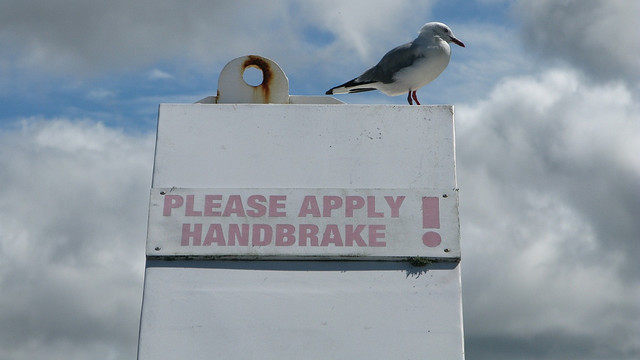
A Monday ruling suggests that educational institutions are entitled to stream legally purchased DVDs on campus without the permission of copyright holders. A federal judge dismissed a lawsuit charging UCLA with violating the Digital Millennium Copyright Act and other provisions of copyright law by ripping DVDs and streaming them to students.
"UCLA is pleased that the court dismissed the plaintiffs' lawsuit challenging UCLA's practice of streaming previously purchased video content for educational purposes," said Scott Waugh, UCLA executive vice chancellor and provost. "The court ruling acknowledges what UCLA has long believed, that streaming licensed DVDs related to coursework to UCLA students over UCLA's secure network is an appropriate educational use."
The lawsuit was brought by a trade association of educational video publishers called the Association for Information Media and Equipment (AIME), and one of its members, Ambrose Video Publishing. The plaintiffs allege that around January 2006, UCLA purchased video streaming software that included a DVD-ripping capability, and began streaming DVDs it had purchased—including some belonging to Ambrose—to members of the UCLA community.
Ambrose and AIME sued in December 2010, alleging copyright infringement, breach of contract, and other harms. They argued that UCLA violated the anti-circumvention provisions of the DMCA when it ripped Ambrose's copy-protected DVDs. They also argued that its DVDs are sold under a licensing agreement that prohibits rebroadcast and public display. And they noted that Ambrose was just one of many copyright holders whose works were included in UCLA's 2,500-work streaming library.
UCLA countered that copyright's fair use doctrine gives educators broad latitude to publicly perform copyrighted works as part of their instructional activities. They also noted that Ambrose's own catalog states that "All purchases by schools and libraries include public performance rights." As for the DMCA claim, UCLA argued that because the school was the lawful owner of the DVDs at issue, it had a right to access the DVDs and therefore could not have run afoul of the ban on circumventing access-control measures.
Judge Consuelo B. Marshall sided with UCLA. She noted that the plaintiffs conceded that UCLA had the right to show its DVDs in the classroom, and ruled that UCLA's streaming service was functionally equivalent. "The type of access that students and/or faculty may have, whether overseas or at a coffee shop, does not take the viewing of the DVD out of the educational context," she wrote. Marshall also ruled that UCLA's copies of the DVDs were incidental to its lawful streaming service, and was therefore fair use.
The DMCA has (at least) two distinct provisions: a prohibition on circumventing copy protection that controls access to a work, and a ban on "trafficking" in circumvention tools. Judge Marshall seems to have accepted UCLA's argument that its lawful purchase of the DVD meant it couldn't have run afoul of the circumvention provision, but she didn't spell out her reasoning. She then ruled that merely purchasing DVD-ripping software didn't constitute "trafficking" in the software.
Judge Marshall's ruling represents a dramatic departure from the traditional understanding of the DMCA, and could have dramatic effects if it is upheld on appeal. After all, the goal of DRM is to prevent even legal purchasers of copyrighted works from making unauthorized copies of the works. If lawful ownership of a DVD precludes a finding of unlawful circumvention, it would render a major provision of the DMCA toothless, and effectively legalize the use (though perhaps not "trafficking") of grey-market DVD-ripping tools like Handbrake.
We've never liked the DMCA's anti-circumvention language, so we'd be delighted to see the rest of the judiciary agree with Judge Marshall. However, her entire discussion of the DMCA is less than a page long, with only three sentences devoted to the circumvention question. The perfunctory nature of Judge Marshall's analysis makes her seem less like a hardcore DMCA reformer than a judge who didn't do her homework.
The decision is likely to be appealed to the US Court of Appeals for the Ninth Circuit. That court has prior experience with DMCA circumvention cases, and will likely engage in a deeper legal analysis. UCLA is a sympathetic and deep-pocketed defendant, so it might prevail. But it faces an uphill fight.
Update: As several readers have pointed out, Handbrake no longer supports native ripping of copy-protected DVDs. Users must obtain a DVD-ripping library separately.
Update: New York Law School's James Grimmelmann emails to suggest an alternative explanation or the shortness of the judge's DMCA analysis. He notes that the plaintiffs focused their arguments on the trafficking provisions of the DMCA, but ignored the circumvention provisions. Since the plaintiffs didn't raise the circumvention issue, Judge Marshall didn't need to address it. She dismissed the lawsuit without prejudice, so Ambrose can amend its complaint and try again.
Listing image by Photograph by beccaplusmolly
reader comments
54